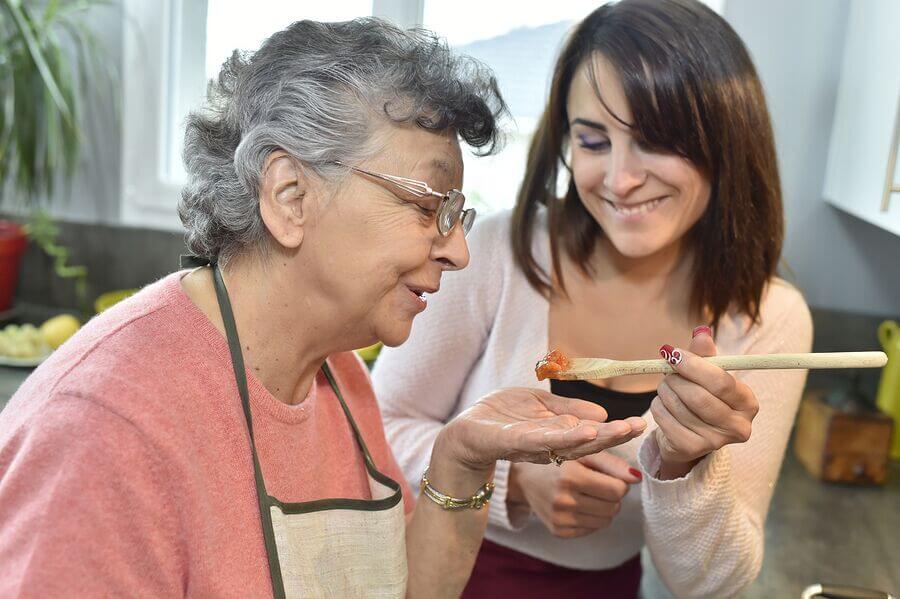Six Big Eating Challenges for People with Dementia

Homecare in Daphne, AL
Lots of daily tasks become much more difficult for seniors with dementia. One of the most challenging situations could be the problems around food and eating. Helping your senior manage some of these difficulties is vital and is much easier at homecare.
Food May Not Taste “Right”
As people age, their senses of smell and taste change a bit. This can cause them to feel like the foods they’ve always enjoyed don’t taste right. For seniors with dementia, this situation can be compounded even further because of the occurring cognitive changes. Even if her senses of smell and taste aren’t affected, your aging family member may feel that some tastes are off to her.
Your Senior’s Appetite May Not Function the Same
What causes your aging family member’s appetite to remain normal is complicated. Being less active is one factor that reduces appetite, but changes to cognition are also a significant factor. Having scheduled meals is one way to work around low appetite. It’s also a good idea to experiment with different portions to see if smaller portions or snacks convince your senior to eat a little more. Homecare providers can help your senior to stay on schedule.
She May Find Distractions Difficult
Dementia brings significant changes, including how sounds, sights, and people around her affect her ability to concentrate. Indeed, it can be much more difficult for your elderly family member to concentrate on eating as her dementia worsens. Doing what you can to reduce distractions during meals can be helpful.
Coordination Starts to Fail
As dementia worsens, your elderly family member may find it a lot more difficult for her to do some things she’s always done. Using utensils is undoubtedly just one of the skills that your senior may lose. Also, offering finger foods may be one way to work around that problem. Meanwhile, homecare can help your senior to eat as well.
Chewing and Swallowing Become Difficult
Another issue that makes eating difficult for seniors with dementia is that chewing and swallowing can become difficult. Or your senior can forget to chew or swallow. Homecare can remind your senior to chew and swallow, helping her to eat her meals and snacks safely.
She May Forget What Food Is and What Isn’t Edible
In terms of general safety, your senior may start to forget what items in the home are edible and what items aren’t. Decorative items, in particular, can pose some serious problems. Removing items like wax fruit can keep your senior from accidentally trying to eat them. This is also why locking up household chemicals and anything dangerous is a good idea.
Keeping your senior as healthy as possible means working around all of these challenges to help her get the nutrition she needs. Your senior’s doctors may have other suggestions to help her to avoid becoming deficient in vital nutrients.
If you or someone you know needs Homecare in Daphne, AL, please contact the friendly caregivers at Hughes Home Care. We provide quality and affordable care for your elderly loved ones in our community. Call Us Today at 251-517-9901. Serving Mobile & Baldwin County.
- Risk Factors that Increase the Likelihood of Heart Failure - April 11, 2025
- Is it Possible for Seniors to Eat 30 Plants a Week? - March 25, 2025
- Healthy Aging: Why Remaining Active Matters - March 7, 2025
